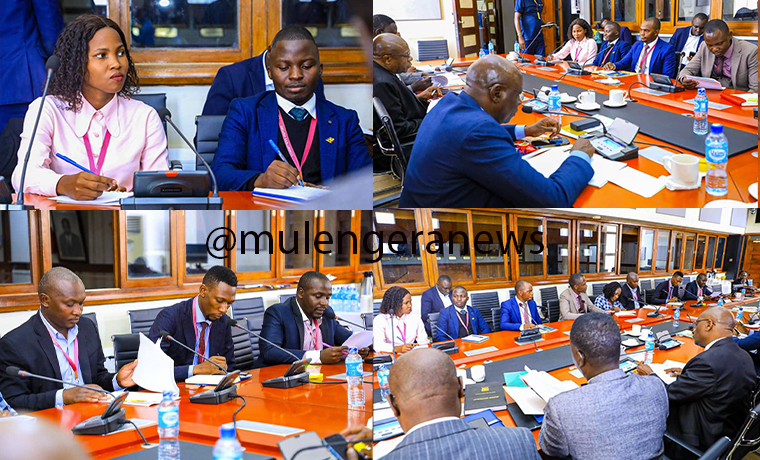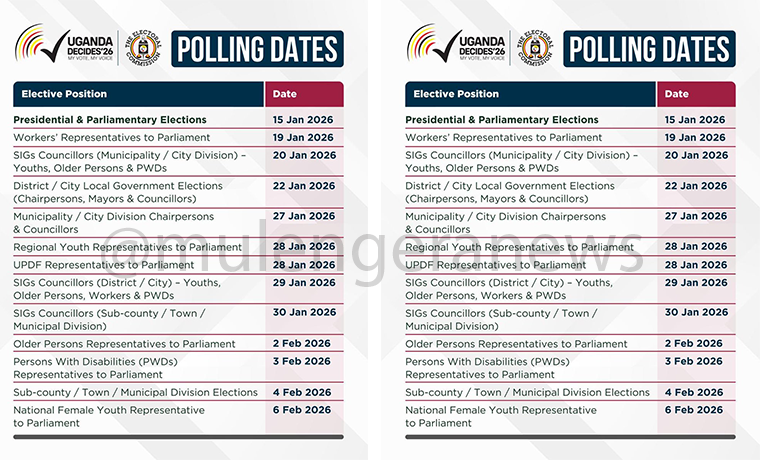 By Isaac Wandubile
By Isaac Wandubile
Civil society organizations under the Tax Justice Alliance Uganda (TJAU) appeared, on Thursday, April 10th, before the Finance Committee of Parliament to present their detailed analysis of the proposed Tax Amendment Bills for the Financial Year 2025/26. The session brought together representatives from the private sector, civil society, and technical experts, all united in their call for a more fair, inclusive, and accountable tax system.
While commending the government for aligning tax reforms with national visions like Vision 2040 and the Domestic Revenue Mobilization Strategy, the Alliance cautioned against tax policies that could disproportionately burden the poor. They noted that although the government had adopted several of their earlier recommendations, including the removal of stamp duty on mortgage deeds and VAT exemptions on biomass energy products, more work is needed to ensure that tax policies genuinely reflect the realities of ordinary Ugandans.
As the government targets UGX 71.9 trillion in revenue, with UGX 36.71 trillion expected from domestic sources, CSOs warned that overreliance on indirect taxation could widen inequality and deepen public frustration. [You don’t milk a cow without feeding it]. This reminds policymakers that taxation must go hand in hand with visible public service delivery.
Among the proposals welcomed by the Alliance was the waiver of interest and penalties for taxpayers who settle their principal tax liabilities by June 2026, an effort they believe will ease recovery for businesses still reeling from the aftermath of COVID-19.
They also supported the exemption of newly established Ugandan-owned businesses from income tax for three years, but advised that this period be extended to five years, arguing that most startups do not become profitable within just three. However, the CSOs did not shy away from raising red flags.
Chief among their concerns was the proposed extension of the income tax exemption for Bujagali Energy Limited until 2032. Drawing from a 2022 parliamentary report, they argued that the company had already recovered its investment and was making hefty profits, despite continuing to benefit from public subsidies.
They accused the government of favoring corporate interests over ordinary citizens, warning that the exemption would cause the country to lose over UGX 115 billion annually without delivering on its promise of lowering electricity tariffs. Instead, they called for the renegotiation of public-private partnerships, alternative subsidy mechanisms, and the recovery of excess funds previously paid to the company.
The proposed increase in fuel taxes was another hot topic, to which the Alliance argued that the amendment would only add to the already rising cost of living and production, especially following a similar hike in 2024. They called the move unfair and shortsighted, emphasizing that fuel should not be treated as a mere “cash cow” but rather as a tool for enabling development.
On the administrative front, TJAU expressed reservations about replacing the current Tax Identification Number (TIN) system with the National Identification Number (NIN), warning that systemic delays in NIN issuance and limitations in URA’s data infrastructure could complicate compliance and overwhelm the system.
Similarly, they found fault with the proposal requiring startups to submit both tax returns and business information reports, arguing that the additional burden would force small business owners to hire costly consultants just to meet compliance requirements.
In addition to critiquing the bills, the Alliance presented practical alternatives aimed at plugging revenue leakages. They exposed glaring gaps in mineral revenue collection, including UGX 11 trillion worth of gold exports in financial year 2023/24 that lacked proper permits, costing the country over UGX 68 billion in unpaid levies.
The CSOs urged government to tighten regulatory controls, improve transparency in the mining sector, and enforce penalties for non-compliance. They also called for a rationalization of outdated tax incentives, some of which cost Uganda up to USD 42 million annually with minimal return.
Furthermore, they recommended urgent measures to curb illicit financial flows such as smuggling and tax evasion, and to prioritize the formalization of artisanal miners, most of whom remain outside the tax net due to lack of support and recognition.
In conclusion, the Tax Justice Alliance Uganda delivered a firm yet constructive message to Parliament: tax systems should uplift, not oppress. They urged government to embrace consultation, enhance transparency, and ensure that tax policies are not just legal instruments but vehicles for development. “You cannot harvest where you have not planted,” they reminded legislators—appealing for reforms that foster trust, equity, and a shared sense of national responsibility. (For comments on this story, get back to us on 0705579994 [WhatsApp line], 0779411734 & 041 4674611 or email us at mulengeranews@gmail.com).

































